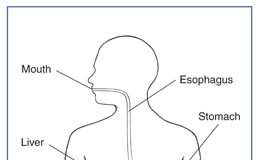Last Updated on January 22, 2024
If you’re thinking about or currently using a dietary supplements, here are some points to keep in mind.
- Tell all your health care providers about any complementary health approaches you use. Give them a full picture of what you do to manage your health. This will help ensure coordinated and safe care.
- It’s especially important to talk to your health care providers if you:
- Take any medications (whether prescription or over-the-counter). Some dietary supplements have been found to interact with medications. For example, the herbal supplement St. John’s wort interacts with many medications, making them less effective.
- Are thinking about replacing your regular medication with one or more dietary supplements.
- Expect to have surgery. Certain dietary supplements may increase the risk of bleeding or affect the response to anesthesia.
- Are pregnant, nursing a baby, attempting to become pregnant, or considering giving a child a dietary supplement. Most dietary supplements have not been tested in pregnant women, nursing mothers, or children.
- Have any medical conditions. Some dietary supplements may harm you if you have particular medical conditions. For example, by taking supplements that contain iron, people with hemochromatosis, a hereditary disease in which too much iron accumulates in the body, could further increase their iron levels and therefore their risk of complications such as liver disease.
- If you’re taking a dietary supplement, follow the label instructions. Talk to your health care provider if you have any questions, particularly about the best dosage for you to take. If you experience any side effects that concern you, stop taking the dietary supplement, and contact your health care provider. You may also want to contact the supplement manufacturer, and you can report your experience to the FDA’s MedWatch program. Consumer safety reports on dietary supplements are an important source of information for the FDA.
- Keep in mind that although many dietary supplements (and some prescription drugs) come from natural sources, “natural” does not always mean “safe.” For example, the herbs comfrey and kava can cause serious harm to the liver. Also, a manufacturer’s use of the term “standardized” (or “verified” or “certified”) does not necessarily guarantee product quality or consistency.
- Be aware that an herbal supplement may contain dozens of compounds and that all of its ingredients may not be known. Researchers are studying many of these products in an effort to identify what ingredients may be active and understand their effects in the body. Also consider the possibility that what’s on the label may not be what’s in the bottle. Analyses of dietary supplements sometimes find differences between labeled and actual ingredients. For example:
- An herbal supplement may not contain the correct plant species.
- The amounts of the ingredients may be lower or higher than the label states. That means you may be taking less—or more—of the dietary supplement than you realize.
- The dietary supplement may be contaminated with other herbs, pesticides, or metals, or even adulterated with unlabeled, illegal ingredients such as prescription drugs.
For current information from the Federal Government on the safety of particular dietary supplements, check the “Dietary Supplement Alerts and Safety Information” section of the FDA Web site or the “Alerts and Advisories” section of the NCCIH Web site.

Dietary Supplements Research at the National Institutes of Health
NCCIH sponsors an array of research to see how dietary supplements might affect the body and tests their use in clinical trials. In fiscal year 2011, NCCIH supported approximately 200 research projects studying dietary supplements.
Also within NIH, ODS focuses specifically on dietary supplements, seeking to strengthen knowledge and understanding of these products by supporting and evaluating research, disseminating results, and educating the public.
NCCIH, ODS, and the National Cancer Institute collaborate to fund dietary supplement research centers focused on botanicals, known collectively as the NIH Botanical Research Centers Program. Scientists at the centers conduct basic research, such as exploring mechanisms of action, on botanicals and help to select products to be tested in clinical trials. The centers are advancing the scientific base of knowledge about botanicals, making it possible to better evaluate their safety and effectiveness.
NCCIH also sponsors a number of other research centers that are studying topics in this field, including antioxidant therapies, botanicals for autoimmune and inflammatory diseases, grape-derived polyphenols for Alzheimer’s disease, and botanicals for pancreatic diseases and for colorectal cancer.
1 “New dietary ingredients” (substances that were not used in dietary supplements before 1994) are an exception to this rule; evidence of their safety must be provided to the FDA before they can be used in dietary supplements.
Key References
- Barnes PM, Bloom B, Nahin RL. Complementary and alternative medicine use among adults and children: United States, 2007. CDC National Health Statistics Report #12. 2008. (299KB PDF)
- Dietary supplements. U.S. Food and Drug Administration Web site. Accessed at www.fda.gov/Food/DietarySupplements on December 20, 2012.
- Dietary supplements: what you need to know. NIH Office of Dietary Supplements Web site. Accessed atods.od.nih.gov/HealthInformation/DS_WhatYouNeedToKnow.aspx on December 20, 2012.
- Gahche J, Bailey R, Burt V, et al. Dietary Supplement Use Among U.S. Adults Has Increased Since NHANES III (1988–1994). NCHS Data Brief No. 61, April 2011. Centers for Disease Control and Prevention Web site. Accessed at www.cdc.gov/nchs/data/databriefs/db61.pdf on December 20, 2012. (536KB PDF)
- Kutz GD. Herbal Dietary Supplements. Examples of Deceptive or Questionable Marketing Practices and Potentially Dangerous Advice. Testimony Before the Special Committee on Aging, U.S. Senate (May 26, 2010) by the Managing Director of Forensic Audits and Special Investigations. U.S. Government Accountability Office Web site. Accessed at www.gao.gov/new.items/d10662t.pdf on December 20, 2012. (500KB PDF)
- U.S. Food and Drug Administration. Tainted Products Marketed as Dietary Supplements. U.S. Food and Drug Administration Web site. Accessed at www.fda.gov/downloads/ForConsumers/ConsumerUpdates/UCM236998.pdf on December 20, 2012. (654KB PDF)
This publication is not copyrighted and is in the public domain. Duplication is encouraged.
NCCIH has provided this material for your information. It is not intended to substitute for the medical expertise and advice of your primary health care provider. We encourage you to discuss any decisions about treatment or care with your health care provider. The mention of any product, service, or therapy is not an endorsement by NCCIH.
* Note: PDF files require a viewer such as the free Adobe Reader.
NCCIH Pub No.: D426








